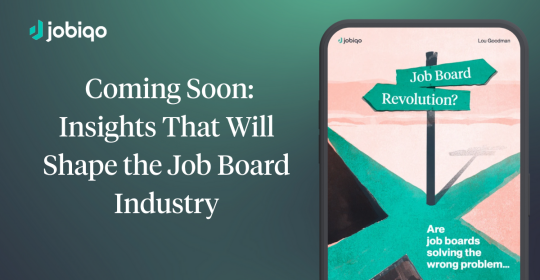Only 38% of businesses believe they have a staff reward and remuneration structure which is highly successful, according to Grant Thornton’s Growth and Strategic Services’ survey of the Top 100 best companies to work for* in the UK.
These results come at a time when there are increasing fears over inflation and unemployment, and employee stress levels are at an all time high.
Jim Rogers, Head of Growth and Strategic Services at Grant Thornton, says: We are astounded that only one third of the UK’s Top 100 best companies to work for believe that their reward and remuneration strategies are highly successful in terms of aligning staff rewards with business objectives. We had expected this figure to be much higher in these companies. Perhaps, despite their success, they are still missing a few tricks in terms of making the best use of the various incentivisation tools available.
Of the remainder, 47% of businesses surveyed felt that they were achieving partial success through their reward strategies, 12% felt they were marginally successful and 3% felt that they have no impact on their business objectives at all, which again seemed surprising.
Thankfully however, of those surveyed two thirds (66%) said that they would review their reward and remuneration strategy over the coming year, continues Rogers. As without success in this crucial area of management it will clearly be a struggle to incentivise staff performance in line with business objectives, create a positive attitude amongst staff, attract high calibre employees or retain existing staff - all of which drive the creation of these policies in the first place.
Most popular rewards in business - Christmas parties are more popular than extra holidays
The survey also asked respondents to identify the most popular rewards in their organisations. Flexible working time lead the way with 89% of businesses allowing their staff to take up such benefits, followed by formal recognition/awards (86%), ad-hoc benefits such as Christmas parties (79%), performance related bonuses (78%) and extra holidays (74%).
Interestingly, incentives such as the provision of life assurance, an increase in basic salary and maternity or paternity benefits (above and beyond the legal requirements) now seem to have been taken for granted as part of normal remuneration packages by staff so are no longer seen as being particularly generous.
Commenting further on the results of the survey, Alysoun Stewart, Director of Growth and Strategic Services, at Grant Thornton says: Information about the most popular methods of rewarding staff is invaluable and should be looked at closely by those who do not offer some of the less obvious benefits to their employees. It is also essential that employees understand that these add-on benefits are genuine rewards that do come at a cost to their organisation.
Despite the recent Turner Report and warnings about changing demographics placing a strain on the state pension, the survey showed that pension provision was not considered as particularly effective or popular as a reward mechanism. In fact employers feel that formal recognition for their staff (52%) is better received by employees than pensions (50%).
The lack of emphasis on pensions is a cause for concern, especially as this probably represents the biggest (and arguably the most important) single investment an individual will ever make. The lack of importance is likely to be a reflection of the wider apathy to pension provision, which the Government is desperately trying to change, comments Stewart.
Workplace culture - relaxed workplace attitude favoured
According to the results of the survey, gone are the days of hierarchal management structures, colleagues who don’t socialise and employees who are ’suited and booted’.
95% of the businesses surveyed say their people have fun at work and three quarters enjoy a drink together regularly in comparison to only 5% of businesses who say they rarely socialise with their work colleagues.
Workplaces were also found to be quite relaxed with people being trusted to get on with their jobs in 92% of businesses - more than twice the number who don’t allow their employees to do things without proper authorisation (45%). More than half the businesses surveyed had a flat structure (52%) with only 33% having a strict or traditional hierarchical structure.
The survey also identified that more than half of the UK’s top 100 best companies to work for say that people in their business are dressed casually (56%) - more than three times those who have a strict dress code (16%).
Commenting on these changes, Jim Rogers says: Businesses clearly have a more relaxed attitude to workplace environments than we have seen in the past, particularly when it comes to allowing individuals to take more responsibility for their work load.
Sporting competitions such as the World Cup provide excellent opportunities for businesses to encourage their employees to socialise and watch the matches together which not only improves staff morale but also communication, says Rogers.
How successful companies achieve their business objectives
The survey asked respondents what they regarded as important in creating an environment that was conducive to achieving their businesses objectives. The key factors identified were strong leadership (88%) and effective communication (77%), whereas only 55% of companies believe that having clearly defined roles and responsibilities or clear reporting lines (37%) will help achieve business objectives.
These progressive companies are proving that leading from the front and having effective communication throughout your company are essential to ensuring that you achieve your business objectives, says Rogers.
Summary of findings
The survey found that the ultimate business model for success (according to the respondents) is strong leadership coupled with open and honest communication that sets a relaxed culture in which staff are encouraged and trusted to posses the corporate maturity to get on with their jobs. This culture must be supported and underpinned by a reward and remuneration strategy that will both motivate staff and ensure that they are incentivised to perform in line with business objectives.
We were surprised that the alignment of reward philosophies with business objectives was not one of the key priorities for businesses when setting their reward and remuneration strategies. However, these companies appear to have found a very successful model to apply to their businesses which would be why they are considered amongst the Top 100 best companies to work for in the UK, concludes Rogers.
Less than half of UK businesses have successful reward and remuneration strategies

Says new Grant Thorton Research





